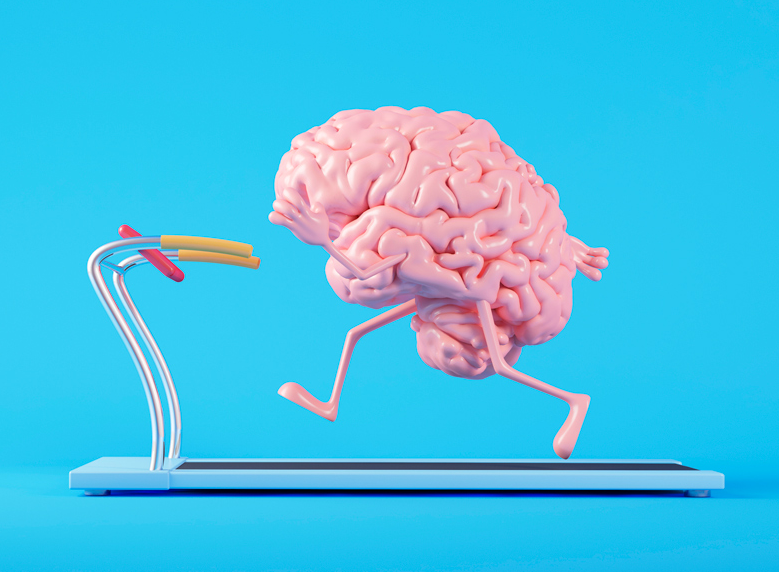Exercise Boosts Brain Function for Years, Study Finds
The Growing Body of Evidence
In recent years, the link between physical exercise and improved brain function has been a hot topic in scientific circles. Researchers have long touted the benefits of a good workout not just for the body, but also for the brain. A new study takes this a step further, providing compelling evidence that the cognitive benefits of exercise can last for several years. This isn’t just a short-term boost; it’s a long-lasting enhancement that could reshape how we think about exercise and brain health.
Highlights of the Study
The study, conducted by a group of scientists, followed participants over several years to gauge the long-term effects of physical activity on cognitive performance. The results were eye-opening:
- Enhanced Memory: Participants showed significant improvements in memory function.
- Better Attention: The ability to focus and maintain attention improved.
- Higher Cognitive Flexibility: Participants were better at switching between tasks and thinking creatively.
These findings are particularly exciting because they suggest that the benefits of exercise are not fleeting. Instead, they have the potential to provide a lasting boost to brain health.
Mechanisms Behind the Benefits
So, what’s actually happening in the brain when you exercise? The study delves into several mechanisms that could explain these benefits:
Increased Blood Flow
One of the most immediate effects of exercise is increased blood flow. Better circulation delivers more oxygen and nutrients to the brain, which supports neuron health and functionality.
Neurogenesis
The process of neurogenesis, or the creation of new neurons, is stimulated by physical activity. This is especially important in the hippocampus, an area of the brain crucial for memory and learning.
Reduced Inflammation
Chronic inflammation can negatively impact brain health. Exercise has been shown to reduce inflammatory markers, contributing to a healthier brain environment.
Release of Neurotransmitters
Physical activity promotes the release of beneficial neurotransmitters like dopamine and serotonin, which are associated with mood regulation and cognitive function.
The Practical Implications
You might be wondering how you can take advantage of these findings in your daily life. Here are some practical tips:
Consistency is Key
The study underscores the importance of consistent, long-term physical activity. Incorporating regular exercise into your routine can provide lasting benefits for your brain.
Mix it Up
Different types of exercise can have varied benefits. Consider combining aerobic activities like running or cycling with strength training and flexibility exercises such as yoga or Pilates.
Set Realistic Goals
Starting small and gradually increasing the intensity and duration of your workouts can make it easier to stick with a program. Even modest amounts of activity can have significant benefits.
Stay Engaged
Choose activities that you enjoy. The more engaged you are, the more likely you are to maintain a regular exercise routine.
Beyond Cognitive Benefits
While the enhanced brain function is a significant benefit, it’s worth noting that physical exercise offers a multitude of other advantages:
- Improved Mood: Exercise releases endorphins, which can help alleviate symptoms of depression and anxiety.
- Better Sleep Quality: Physical activity can help regulate sleep patterns.
- Increased Energy Levels: Regular exercise can boost your overall energy and stamina.
- Enhanced Immune Function: A stronger immune system can help fend off illnesses more effectively.
These additional benefits make a compelling case for incorporating regular physical activity into your lifestyle.
A Plan for All Ages
It’s never too late—or too early—to start reaping the benefits of exercise. Whether you’re a teenager, a middle-aged adult, or a senior, there’s a plan that can work for you.
Children and Adolescents
For the younger crowd, incorporating play and sports can make exercise fun and engaging.
Adults
Busy schedules often make it challenging for adults to find time for exercise, but even short, regular sessions can yield significant benefits. Consider activities like brisk walking, swimming, or joining a fitness class.
Seniors
Older adults can benefit from low-impact activities that focus on balance, strength, and flexibility, such as yoga or tai chi.
The Future of Brain Health
As research continues to uncover the myriad benefits of physical exercise, it becomes increasingly clear that the key to long-term cognitive health may lie in staying active. This study is a significant step forward, illustrating that the activity we engage in today can have lasting benefits for our brains years down the line.
So, lace up those sneakers and get moving. Your brain will thank you for it.









